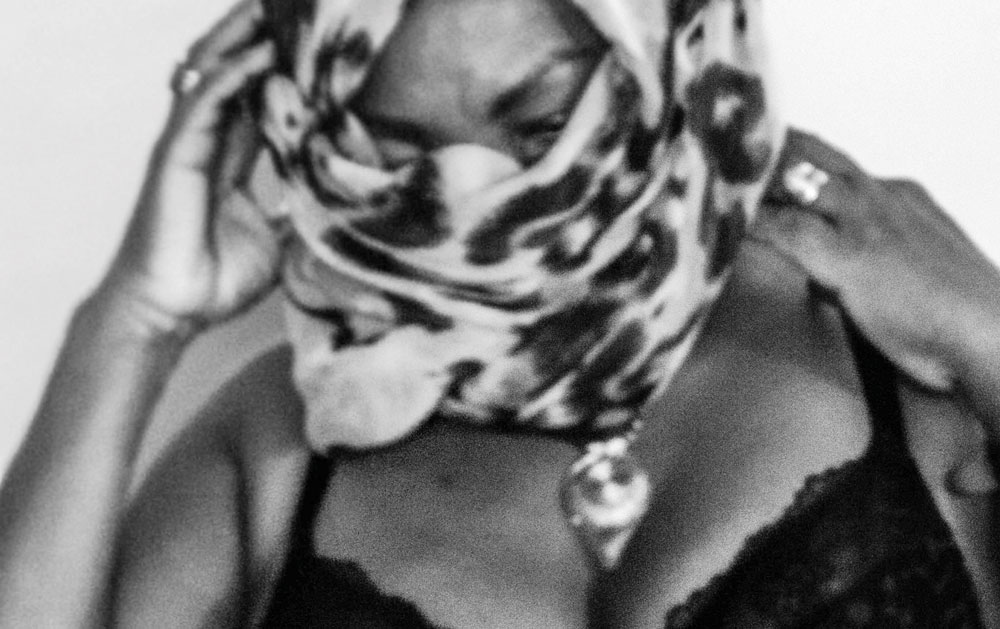Current Campaigns
Sustainable Development Goals 2030

In September of 2015, after over a year of consultation with civil society organizations, citizens, scientists, academics, and the private sector, world leaders adopted the Sustainable Development Goals (SDGs).
There are 17 Sustainable Development Goals (SDGs) featuring 169 sub-targets on a wide variety of important social, economic, and environmental priorities. Although the SDGs do not have a standalone goal on HIV, like the Millennium Development Goals did, it does include:
Goal 3: “Ensure healthy lives and promote well-being for all at all ages.”
Goal 3 which includes among other things, specific targets to: reduce maternal mortality; end AIDS, malaria and tuberculosis by 2030; ensure access to safe, effective quality and affordable medicines; and, critically, ensure universal access to sexual and reproductive health care services including family planning.
Goal 5 “Achieve gender equality and empower all women and girls.”
Goal 5 which includes specific targets on ending all forms of discrimination against all women and girls everywhere, eliminating all forms of violence in public and private spheres and ensuring universal access to sexual and reproductive health and reproductive rights.
To explore all 17 Sustainable Development Goals check out: “Transforming Our World: The 2030 Agenda.”
What is the role of networks of women living with HIV in the SDGs?
Demanding what we need!
The Sustainable Development Goals (SDGs) represent a unique opportunity for networks of women living with HIV to undertake advocacy to ensure that SDG prioritization, investment and implementation are responsive to our needs.
Women living with HIV can and should be highly involved in country-level implementation, monitoring, and accountability processes from the very start!


How are networks engaging in the first year of the SDGs?
In this first year of the SDGs, ICW embarked on an innovative project to support networks of women living with HIV to engage with SDG implementation in their countries. The project was supported by UN Women.
This year ICW held a series of interactive three day workshops designed to engage networks of women living with HIV, to provide key information about the SDG’s, develop an SDG priority charter for their network and needs and develop a strategy to participate in SDG prioritization and implementation at country level.
In partnership with ICW Southern Africa:
- Namibian Women’s Health Network: Windhoek, Namibia
- ICW Mozambique: Maputo, Mozambique
In partnership with ICW Eastern Europe and Central Asia:
- Eurasian Women’s Network on AIDS: Lviv, Ukraine
The culmination of these workshops included an opportunity to meet directly with key ministers and individuals who are tasked with moving the SDG’s forward at country level.

With support from UN Women we were also able to support five networks of women living with HIV to hold mini-workshops or projects in their countries to engage with the SDGs. The projects included mini-workshops and community meetings about engaging in SDG implementation.
- ICW Zimbabwe: Harare, Zimbabwe
- Thai Positive Women’s Network & ICW Asia Pacific: Bangkok, Thailand
- EVA, Russian Positive Women’s Network & ICW EECA: Saint Petersburg, Russia
- ICW Kenya: Nairobi, Kenya
- ICW République Démocratique du Congo, Kishasa: Democratic Republic du Congo

“Women living with HIV call for affirmative action with the need to own our future.”
Ensuring that the SDGs are responsive to the needs of women living with HIV will require long-term and sustained activism, advocacy and investment over the next 15 years.

Information on how you can engage with the SDGs!
ICW Resources
ICW SDGs & Women living with HIV
What ICW has to say about the SDGs
Helpful Links
Introduction to the SDGs
https://sustainabledevelopment.un.org
Millennium Development Goals
http://www.un.org/millenniumgoals/
Sustainable Development Goals Indicators
http://unstats.un.org/sdgs/
High Level Political Forum: Follow-up and Review Mechanism
https://sustainabledevelopment.un.org/hlpf
High Level Political Forum: Country Inputs
https://sustainabledevelopment.un.org/hlpf/inputs
Realizing Rights Through The Sustainable Development Goals:
The role of national human rights institutions
http://www.cesr.org/downloads/NHRI_realizing_rights_sdgs.pdf
Producing Shadow Reports to the CEDAW Committee: A Procedural Guide
http://hrlibrary.umn.edu/iwraw/proceduralguide-08.html
Driving Gender Responsive Implementation of 2030 Agenda:
http://www2.unwomen.org/~/media/headquarters/attachments/sections/library/publications/2016/driving-gender-responsive-implementation-2030agenda.pdf?v=1&d=20160812T205353
I am ICW

The images of women living with HIV have been prolific – and often coupled with the tag line “The face of AIDS is a women” in an effort to draw attention to the impact of HIV on women. Whilst well meaning, such campaigns often had the opposite effect – marginalizing women, other-ing women and making women one-dimensional and powerless.
ICW, as the only global network of women living with HIV, are launching a campaign to demonstrate the diversity and vibrancy of women living with HIV through a series of portraits that show the complexities of each individual and the vast potency of a movement that is so multi-faceted, far-reaching and powerful.
An ongoing project, the images exhibited during the International AIDS Conference were of women living with HIV from Southern Africa and South East Asia.
 I am ICW Postcard (598 KB)
I am ICW Postcard (598 KB)
Images taken by Vicci Tallis, a feminist, activist, writer and more recently a photographer. She has been actively involved in HIV since 1986 and has worked in Africa and Asia. She believes photography is a powerful medium to address the oppression of women, and focuses on the multiple marginalisation of women living with HIV.
If you are interested in participating in any of these projects or know any women who might be please connect them with Vicci at [email protected]
Love Positive Women

LOVE POSITIVE WOMEN: Romance Starts at Home! (LPW) started in 2013. It is a holiday for women living with HIV that happens annually from February 1st – 14th. It spread the word LPW uses social media to link local grassroots gestures of love. Using Valentine’s Day as a backdrop, LPW creates a platform for individuals and communities to engage in public and private acts of love and caring for women living with HIV. Going beyond romantic love to deep community love and social justice, LPW is call to action. It requires participants to reflect on how they as either a woman living with HIV or an ally will commit to loving women living with HIV and then do it. Through action, change can be made to fueling economies of love and compassion. Working from a place of strength, LPW focuses on the idea of interconnectedness, relationship building, loving oneself and loving ones community. By starting from a place of love, within oneself there are endless ways that the negative impacts that HIV has on women living with HIV can be lessened.
Non-Negotiable: My Body, My Womb, My Rights

End Forced and Coerced Sterilization of Women Living with HIV
Sterilization without informed consent or under coercion is part of a systemic pattern of discriminatory violations of sexual and reproductive health and rights experienced globally by women living with HIV. The practice has been documented by ICW networks and other groups in at least 30 countries around the world. Despite differences of geography, the stories of women living with HIV who have experienced coercive and/or forced sterilization are very similar and are frequently reported in the context of prevention of vertical transmission.
Woman-to-Woman Emergency Relief Fund for the women in Nepal

Take Action Now: ICW Sisters in Solidarity with Women Living with HIV in Nepal
The International Community of Women Living with HIV (ICW) is deeply saddened by the devastation caused by the two earthquakes that struck Nepal on April 25th, 2015 and May 12, 2015. Our heartfelt thoughts go out to our sisters in Nepal who are struggling to survive the current disaster. But we want to do more than just express our sympathy.
ICW is stepping up to raise funds that will directly go to women living with HIV on the ground in Nepal for urgent basic needs during this critical period. We are calling on our sisters (partners, allies and friends) to join us.
Foreign/bodies

HIV impacts on how women are viewed in society and more importantly how they are view themselves. Being HIV positive impacts on all aspects of women’s lives – and yet little attention is paid to how women often experience a shift in body image – a disconnect between themselves and their bodies.
The Foreign/bodies project explores women’s negative experiences of living with HIV and the disconnect between self and body image. A set of images portrays the multiple, complex emotions of what an HIV diagnosis means – and how it changes how the body is viewed. Foreign/bodies explore women’s experiences of being HIV and documents changes that can be seen and those that can not – representing the emotional and the physical. Each woman’s story is represented by 8–12 images which exposes the realities for each woman in a cathartic process which will hopefully, in some small way, enable women to confront deep seated pain and start to reconnect body and self. The exhibition will focus on one woman’s journey.
Table of Contents
Toggle